Gifted & Talented programs are what true progress is all about









Editorial: With a £20bn Budget black hole to plug, the chancellor has no option but to break Labour’s manifesto pledge – tinkering in the margins will hurt growth, while slashing public spending will lead to electoral ruin
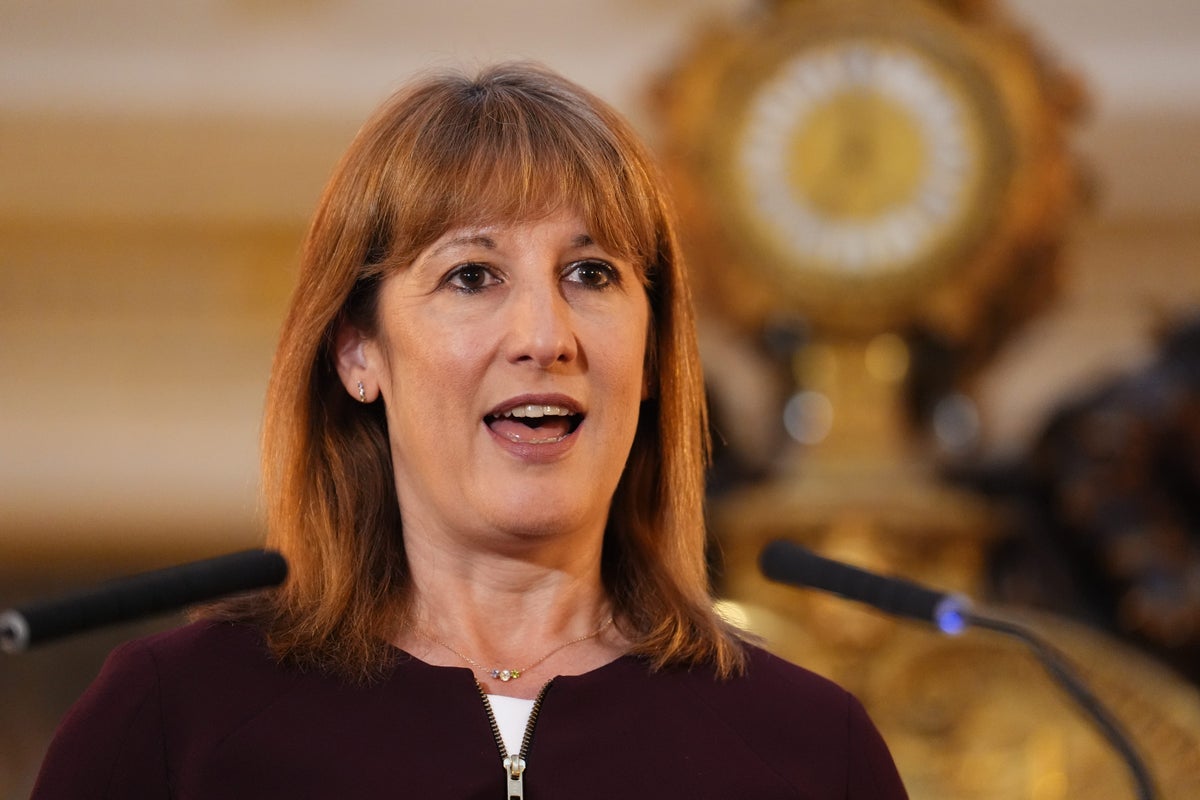
© PA Wire
Fixing prisons, hospitals and local councils means rejecting austerity’s logic and recognising that state spending builds competence, not waste
The fiasco over the accidental release of Hadush Kebatu, who was serving a sentence for sexual assault and due to be deported from HMP Chelmsford, is a symptom of a wider problem. What ails the British state is that it has built, and is building, what it cannot seem to maintain.
A decade of attrition has hollowed out public services to the extent that they struggle to function coherently or plan beyond the next crisis. Under the Tories, state spending grew by just over 1% a year – well below the long-run trend of 2.6% per year. This hides the fact that Britain’s fiscal story since 2010 has been an emphasis on capital spending that sends ministers reaching for hard hats, but doesn’t keep the lights on. However, investment without maintenance is just decay.
Do you have an opinion on the issues raised in this article? If you would like to submit a response of up to 300 words by email to be considered for publication in our letters section, please click here.
Continue reading...
© Photograph: Sean Smith/The Guardian

© Photograph: Sean Smith/The Guardian

© Photograph: Sean Smith/The Guardian
The professional environment for journalists taking on powerful interests is worsening in a polarised climate
The so-called anni di piombo (years of lead) remain a dark memory for Italians of a certain age. The semi-normalisation of political terrorism and mafia hits in the 1970s and 80s blighted civic life, and that brutal past continues to haunt the present. Forty-five years after the fact, a retired police officer has just been arrested in relation to the mafia killing in 1980 of Piersanti Mattarella, the then president of Sicily.
Unsurprisingly, given that history, the blowing up of a car belonging to one of Italy’s most famous investigative journalists has prompted an urgent and angst-ridden debate. Sigfrido Ranucci, who hosts a prime-time show on Rai, Italy’s state broadcaster, is known for presenting hard-hitting investigations into political corruption and organised crime. Earlier this month, a powerful bomb almost destroyed his black Mercedes, which was parked outside his home near Rome. The attack appeared to be timed to coincide with the eighth anniversary of the assassination of the Maltese investigative journalist Daphne Caruana Galizia.
Do you have an opinion on the issues raised in this article? If you would like to submit a response of up to 300 words by email to be considered for publication in our letters section, please click here.
Continue reading...
© Photograph: Alessandro Di Meo/EPA
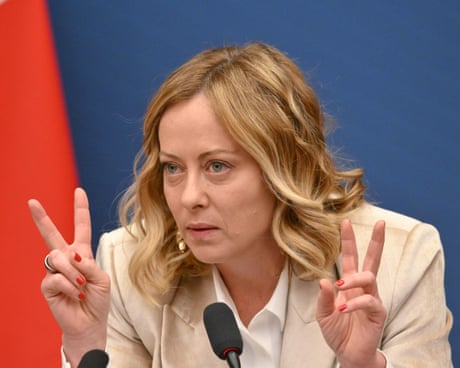
© Photograph: Alessandro Di Meo/EPA
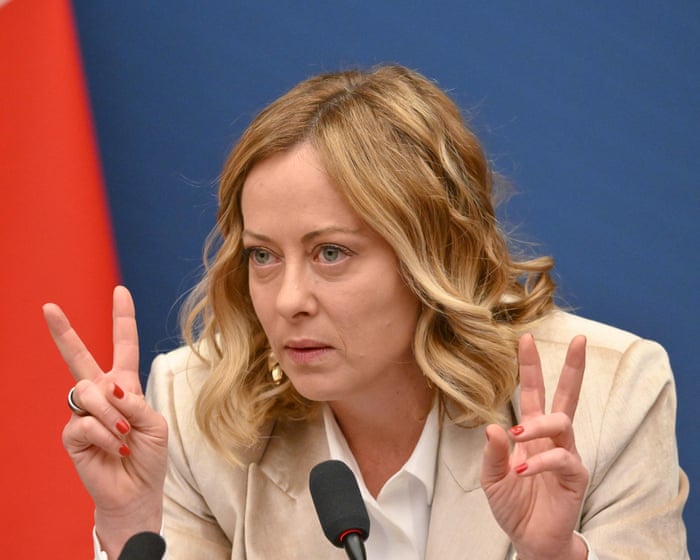
© Photograph: Alessandro Di Meo/EPA
Editorial: Billions have been wasted on unfit accommodation that suits neither the migrants who shelter there nor the communities enraged by their presence. It is imperative that the government take decisive steps and build an alternative – now

© AP
The consequences of Donald Trump’s decision to scrap USAID, and other countries’ decisions to reduce funding, are playing out in deadly fashion
Malaria is a pandemic disease that hits the voiceless hardest: most of those who fall ill and die are small children and pregnant women in Africa. It is the leading infectious killer of the continent, responsible for nearly 600,000 deaths a year. Cases are rising and there is an urgent need for more funding, yet western donor countries are instead cutting back on aid. We still hear brave talk about eliminating malaria. But an expert report now warns of a potential resurgence that could add almost a million more deaths to the annual toll by the end of the decade.
Most of the money to fight the mosquito-borne disease – 59% – comes through the Global Fund to Fight Aids, Tuberculosis and Malaria. Its executive director, Peter Sands, said last week at the World Health Summit in Berlin that of the three killers, the one that kept him awake at night was malaria.
Do you have an opinion on the issues raised in this article? If you would like to submit a response of up to 300 words by email to be considered for publication in our letters section, please click here.
Continue reading...
© Photograph: Hajarah Nalwadda/Getty Images

© Photograph: Hajarah Nalwadda/Getty Images

© Photograph: Hajarah Nalwadda/Getty Images

© Rebecca Chew/The New York Times
Electronic implants are helping people to see again. Their promise is profound, but so are the risks. Progress must be guided by ethics and accessibility
In medical terms, the eye is not the window to the soul, but to the mind. The retina and the optic nerve are outgrowths of neural tissue, and the remarkable success of electronic implants in restoring sight shows how far brain-computer interfaces have come. These have not delivered a sci-fi vision of augmented humans with incredible new powers but, perhaps more happily, significant progress has been made, restoring ability and agency to those who have suffered injury or disease.
People with age-related macular degeneration face a fading world. The disease, affecting about 600,000 people in the UK, causes progressive loss of central vision. There is no cure, but new trials offer something else: a new way of seeing.
Continue reading...
© Photograph: Moorfields Eye Hospital/PA

© Photograph: Moorfields Eye Hospital/PA

© Photograph: Moorfields Eye Hospital/PA

© Illustration by Rebecca Chew/The New York Times
A new wave of socially engaged movies is storming the box office and changing how we think about the genre
It should surprise no one to learn that 2025 is being hailed as a golden year for horror films. All horror movies are a reflection of their time, and ours are pretty scary.
Tech dystopianism means that Frankenstein’s monster has become a byword for AI, while Bram Stoker’s Dracula has always drawn on a dark strain of English xenophobia. So it is no coincidence that these 19th-century gothic villains, stars of the earliest horror films in the 1920s and 30s, are back in cinemas with new adaptations from directors Guillermo del Toro and Luc Besson. Maggie Gyllenhaal is bringing out another Frankenstein, The Bride!, next year.
Do you have an opinion on the issues raised in this article? If you would like to submit a response of up to 300 words by email to be considered for publication in our letters section, please click here.
Continue reading...
© Photograph: Ken Woroner/Netflix

© Photograph: Ken Woroner/Netflix

© Photograph: Ken Woroner/Netflix
Tory plans to revoke indefinite leave to remain in pursuit of greater ‘cultural coherence’ resemble the most extreme ambitions of far-right fringe parties
It is too early to declare Sir Keir Starmer’s “one in, one out” migration deal with France a failure, but nor can the government claim that it is working as intended. This week, the Guardian revealed that one of the first people deported under the treaty had found his way back to the UK via a small boat. On the same day, Home Office data revealed that the number of people who had made the journey so far this year – 36,886 – had surpassed the total for 2024. The usual partisan recriminations followed. Opposition parties accuse Labour of failing to grip the problem; ministers say they are burdened by a long legacy of Conservative mismanagement. Both things can be true.
For all its deficiencies, Sir Keir’s deal with France recognises two facts that his Tory and Reform UK opponents cannot accept. First, engagement with EU states is a sine qua non of functional migration policy. Second, without some legal mechanism for accepting refugees, desperate people will always gamble on the illegal ways.
Do you have an opinion on the issues raised in this article? If you would like to submit a response of up to 300 words by email to be considered for publication in our letters section, please click here.
Continue reading...
© Photograph: Jonathan Hordle/ITV/Shutterstock

© Photograph: Jonathan Hordle/ITV/Shutterstock

© Photograph: Jonathan Hordle/ITV/Shutterstock
A failure at Amazon’s server centre paralysed global services for 15 hours. It was not just a glitch but a stark reminder of our digital dependency and fragility
An outage at Amazon Web Services (AWS) on Monday disrupted apps and websites around the world, affecting more than 2,000 companies and leaving millions of users unable to access services like Snapchat, Roblox, Signal, Duolingo and even Amazon’s own operations. Removing the tech from our tech-dependent existence led to workers being sent home and exams delayed. The crash, which lasted 15 hours, underlined how deeply our digital lives depend on a small number of cloud providers – and how vulnerable many everyday systems are to a single failure.
If data is the new oil, then cloud computing is the pipeline, the refinery, the tanker fleet and, increasingly, the pump too. The big three – AWS, Microsoft Azure and Google Cloud – account for 60% of global cloud computing. They own the networks and cables that move data across the world. Their platforms don’t just turn data into useful insights – they do it with proprietary tools that make switching providers costly and complex. Finally, through Amazon’s Alexa, Google Workspace and Microsoft 365, they are also shaping how people interact with data and services.
Continue reading...
© Photograph: Horst Friedrichs/Alamy
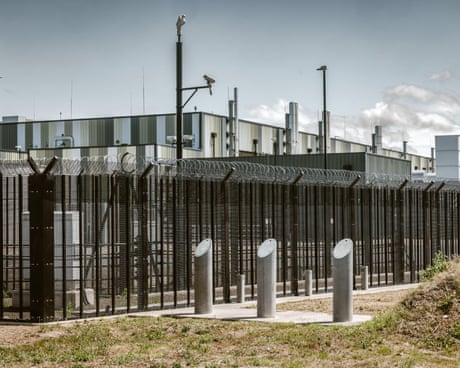
© Photograph: Horst Friedrichs/Alamy
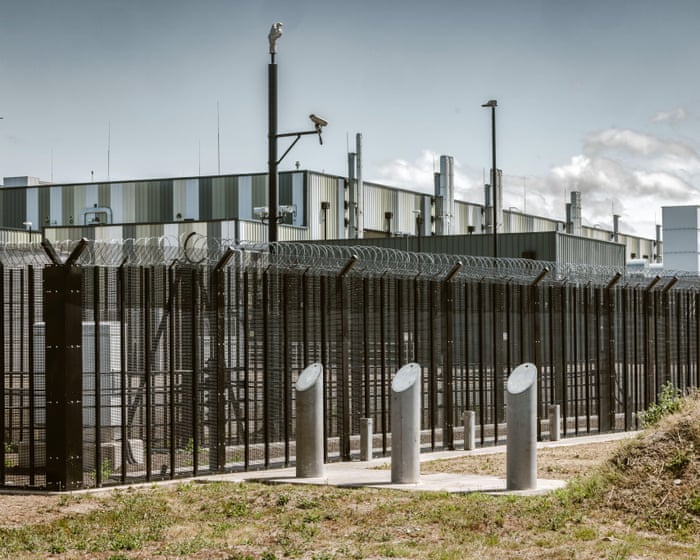
© Photograph: Horst Friedrichs/Alamy
Attempts by the former French president and his supporters to discredit the legal process by which he was sentenced have been irresponsible and unjustified
As he was transported to La Santé prison in Paris on Tuesday, Nicolas Sarkozy posted a message brimming with defiance on X, writing “It’s not a former president of the republic who is being jailed this morning, it’s an innocent man”. A court of appeal will eventually give its view on the veracity of the second clause of that statement. But unfortunately for Mr Sarkozy, the drama and significance of his fall cannot simply be wished away.
President of France between 2007 and 2012, Mr Sarkozy was found guilty of criminal conspiracy to obtain illicit campaign funds from the regime of the late Libyan dictator, Muammar Gaddafi. Handed a five‑year sentence, he has become the first former leader of an EU country to go behind bars, and the first French leader since the disgraced head of Vichy France, Philippe Pétain. In a country in which the elected president enjoys a quasi-monarchical status, Tuesday’s extraordinary spectacle was a seminal moment.
Do you have an opinion on the issues raised in this article? If you would like to submit a response of up to 300 words by email to be considered for publication in our letters section, please click here.
Continue reading...
© Photograph: PSNEWZ/SIPA/Shutterstock
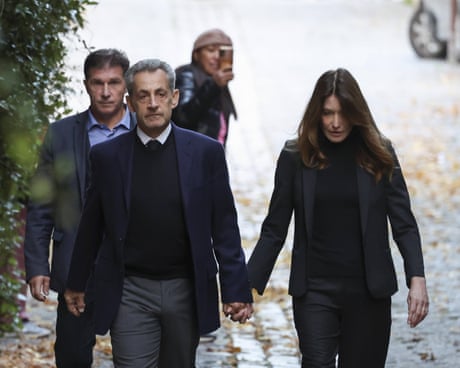
© Photograph: PSNEWZ/SIPA/Shutterstock
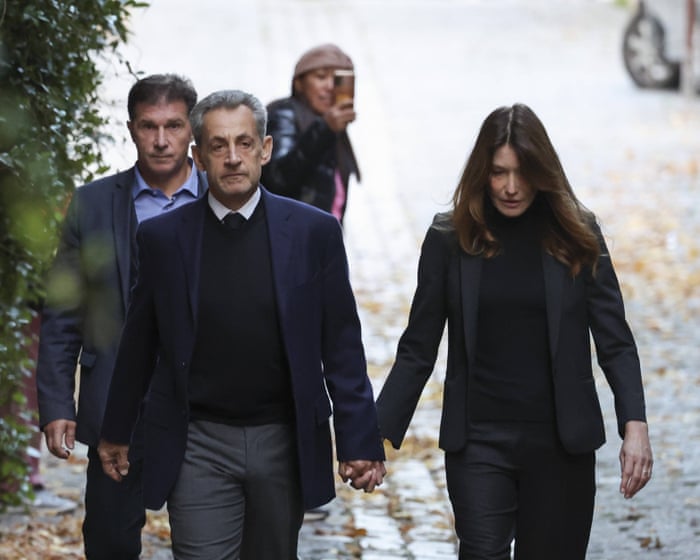
© Photograph: PSNEWZ/SIPA/Shutterstock
The Jeffrey Epstein scandal has exposed a constitutional blind spot: royal privilege remains beyond democratic scrutiny. MPs must be able to question power
The tragic story of Virginia Giuffre raises the question of who governs when royal privilege and public outrage collide. As a vulnerable teenager she was drawn into a world of sexual exploitation by the disgraced financier Jeffrey Epstein. Ms Giuffre alleged that Epstein trafficked her and that she was forced to have sex with Prince Andrew on three occasions, including when she was 17. He has denied all the claims. Despite previously insisting he had no memory of meeting her, the prince reportedly paid £12m to settle her civil case in 2022. The money was said to have come from his mother, the late queen – who, just six weeks later, was photographed walking beside him at her husband’s memorial service.
With a posthumous memoir, Ms Giuffre has brought the issue back into the spotlight. In his calamitous 2019 Newsnight interview, Prince Andrew claimed that he cut all ties with Epstein after their December 2010 meeting in New York. But leaked emails from just two months later told a different story; with Prince Andrew asking to keep in touch and writing that “we’ll play some more soon!!!!” The Metropolitan police is now looking into claims that King Charles’s brother asked his protection officers to look into Ms Giuffre. He has agreed not to use his royal titles, notably Duke of York, but that is a voluntary renunciation, not a legal one. Across homes, pubs and radio phone-ins, people are debating whether he should be stripped of his titles. But in parliament the subject is taboo, barred by rules against “reflections” on the royals.
Do you have an opinion on the issues raised in this article? If you would like to submit a response of up to 300 words by email to be considered for publication in our letters section, please click here.
Continue reading...
© Photograph: Everett Collection Inc/Alamy

© Photograph: Everett Collection Inc/Alamy

© Photograph: Everett Collection Inc/Alamy
The US president’s attempts to broker a deal fail to distinguish between the aggressor and the victim. No just agreement is possible on that basis
It wasn’t quite the calamity of February, when Volodymyr Zelenskyy was publicly humiliated in the Oval Office by Donald Trump and his vice-president, JD Vance. But the Ukrainian president’s latest visit to the White House on Friday was, by all accounts, a disquieting experience. Mr Trump’s public musings before the meeting suggested that his stance had hardened towards Vladimir Putin, to the strategically significant extent of being willing to sell long-range Tomahawk missiles to Kyiv. But by the time Mr Zelenskyy arrived in Washington, the US president had changed his mind, instead lecturing his guest on the need to make territorial concessions to Russia.
So far, so familiar. Since being re-elected, Mr Trump has repeatedly resiled from following up tough talk on Russia with meaningful action. Faux deadlines for Mr Putin to make substantive steps towards peace have come and gone, treated with indifference by the Kremlin. Last week, the US secretary of war, Pete Hegseth, stated that Washington was ready to “impose costs” if Russia continued the conflict. But a two-hour phone call at Mr Putin’s request was enough to defuse that threat, and for Mr Trump to once again position himself as a neutral arbitrator between two warring parties.
Do you have an opinion on the issues raised in this article? If you would like to submit a response of up to 300 words by email to be considered for publication in our letters section, please click here.
Continue reading...
© Photograph: Andrew Harnik/Getty Images
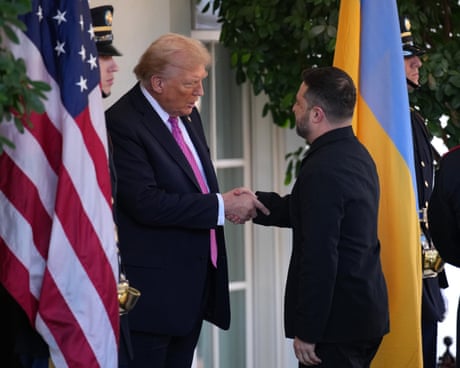
© Photograph: Andrew Harnik/Getty Images
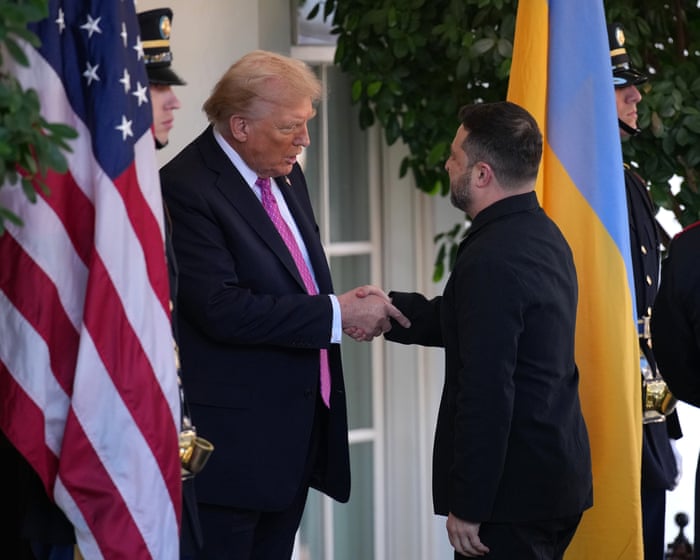
© Photograph: Andrew Harnik/Getty Images
Plug-in hybrids pollute more than their manufacturers claim – and delay the real shift to electric and shared mobility
“Why the future is hybrid,” chirruped the Economist in 2004. While electric vehicles (EVs) looked like science fiction, that prediction looked prescient. Fast‑forward 20 years and battery technology has improved dramatically; EVs are affordable. Last week it emerged that plug-in hybrid electric vehicles (PHEVs) aren’t very green. The sales pitch had been that motorists could use “clean” battery power for city jaunts and dirty petrol for longer trips. This promised sustainable travel without the anxiety of a limited range. But real‑world tests, by the European non-profit Transport and Environment, show that PHEVs emit just 19% less carbon dioxide than petrol and diesel cars – far short of the 75% claimed in the lab.
Hybrid vehicles are, however, very profitable. Carmakers can charge top dollar for what are essentially re-engineered petrol cars with a battery bolted on. They also remain attractive to policymakers keen for industry sops. By weakening electric vehicle targets, the UK government risks a scandal in pushing hybrids that emit five times more CO2 than claimed.
Continue reading...
© Photograph: nrqemi/Getty Images/iStockphoto
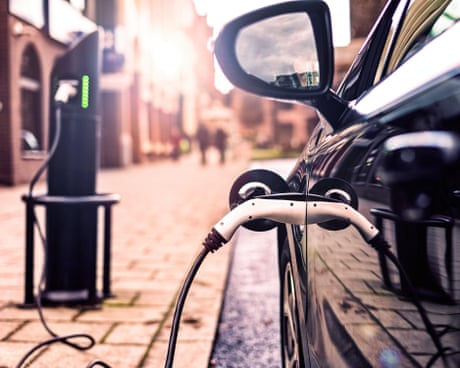
© Photograph: nrqemi/Getty Images/iStockphoto

© Photograph: nrqemi/Getty Images/iStockphoto
Grave shortcomings in the care offered to mothers and babies are well documented. But it is not clear that the right lessons have been learned
The startling rise in the cost to the NHS in England of medical negligence cases, and a sharp increase in birth injuries to mothers, are the latest warning signs of deeply troubling failures in maternity services. The £60bn estimate of negligence liabilities, from the National Audit Office, represents a quadrupling in less than 20 years. While some medical specialties have seen falling payouts, those in obstetrics rose. The reason why payments in such negligence cases are so high is that when babies are injured, awards must cover lifetime care needs.
Grave shortcomings in maternity care are widely recognised, along with unjust disparities in outcomes for women from different socioeconomic and racial groups. Preventable deaths and injuries at units in Morecambe Bay, Shrewsbury and Telford, and East Kent, have been among the most shocking patient safety scandals of recent years.
Do you have an opinion on the issues raised in this article? If you would like to submit a response of up to 300 words by email to be considered for publication in our letters section, please click here.
Continue reading...
© Photograph: Justin Paget/Getty Images
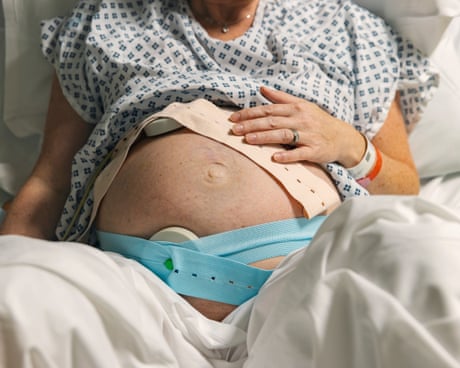
© Photograph: Justin Paget/Getty Images
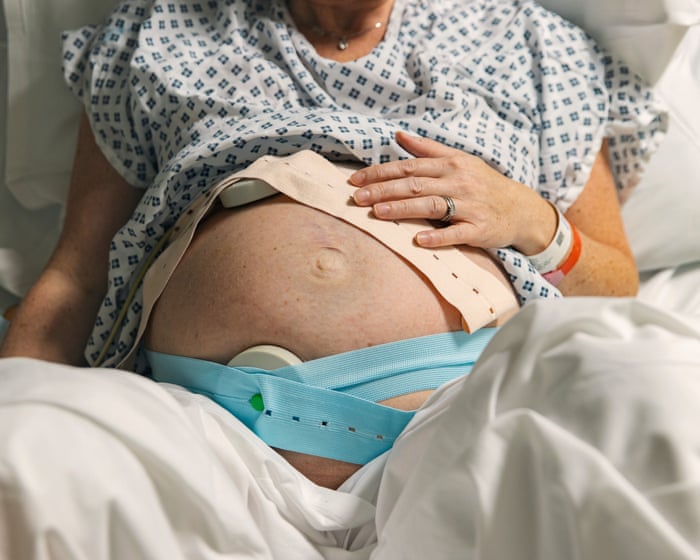
© Photograph: Justin Paget/Getty Images
The indictment of critics including John Bolton rings alarm bells as the US president expands his power and seeks to use the justice system to exact revenge
“He who saves his country does not violate any law,” Donald Trump posted after beginning his second term – emboldened, perhaps, by the supreme court’s bombshell ruling on presidential immunity last year, which many say gave the office-holder the powers of a monarch.
Millions of Americans are expected to push back against the president’s growing power at No Kings protests across the US on Saturday. The demonstrations come as former intelligence and national security officials warn that the country is sliding towards “competitive authoritarianism”, in which elections and courts survive but are systematically manipulated by the executive.
Continue reading...
© Photograph: Leah Millis/Reuters

© Photograph: Leah Millis/Reuters

© Photograph: Leah Millis/Reuters
The appetite for onscreen versions of much-loved literature is endless, but dogged faithfulness to a text is not the only way to stay true to authors’ spirit
It is a truth universally acknowledged that every classic novel must be in want of a sexed-up adaptation. Ever since Colin Firth’s Mr Darcy waded out of the lake in a wet shirt in the BBC’s 1995 Pride and Prejudice adapted by Andrew Davies, we have expected the undercurrents of novels to be writ large on screen: the novel is dripping in sexual tension – who knew? No one objects when Jane Austen’s couples kiss on TV, although it never happens on the page. But we are reluctant to imagine more troubling historical realities, such as maternal mortality, or where the fortunes behind the big houses came from.
As part of the 250th celebrations of Austen’s birth, Davies shocked audiences at the Cliveden literary festival last week with revelations that he is working on versions of Emma and Mansfield Park that will include death, debauchery and slavery. Spoiler: Emma dies in childbirth.
Continue reading...
© Photograph: Artificial Eye/Sportsphoto/Allstar

© Photograph: Artificial Eye/Sportsphoto/Allstar

© Photograph: Artificial Eye/Sportsphoto/Allstar
Hawks want regime change. Democrats and others are right to warn against illegal and unauthorised use of force
The drumbeat is growing louder. Covert operations are supposed to remain just that, but on Wednesday Donald Trump confirmed that he had approved secret CIA actions in Venezuela and suggested that he was considering strikes on its territory. These comments follow the administration’s extrajudicial killings at sea: attacks on alleged drug boats in the Caribbean that have left at least 27 dead – a frightening new precedent denounced by UN experts as illegal. The US has already built up forces in the region, with about 6,500 troops now stationed there. “No to war in the Caribbean … No to regime change … No to coups d’état orchestrated by the CIA,” railed Nicolás Maduro, Venezuela’s dictator, after Mr Trump’s remarks.
The US president’s repeated claim that each boat strike saves 25,000 American lives is even more preposterous than it first sounds. The fentanyl that killed 48,000 people in the US last year did not come from Venezuela; most of it is from Mexico. But Mr Maduro’s regime looks increasingly isolated. The US has designated Venezuela’s Tren de Aragua gang as a terrorist organisation that has “invaded” the US, claiming that Mr Maduro is personally responsible. It has used that posturing to justify deportations and to boast – against the evidence – that Mr Trump has cut violent crime in cities.
Do you have an opinion on the issues raised in this article? If you would like to submit a response of up to 300 words by email to be considered for publication in our letters section, please click here.
Continue reading...
© Photograph: Leonardo Fernández Viloria/Reuters
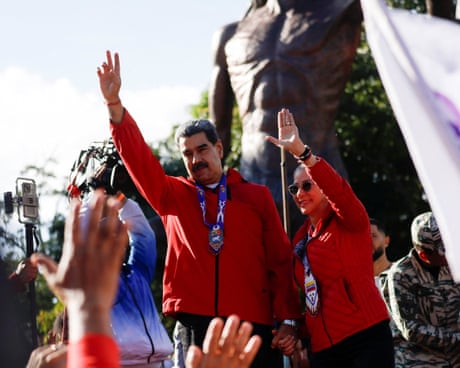
© Photograph: Leonardo Fernández Viloria/Reuters
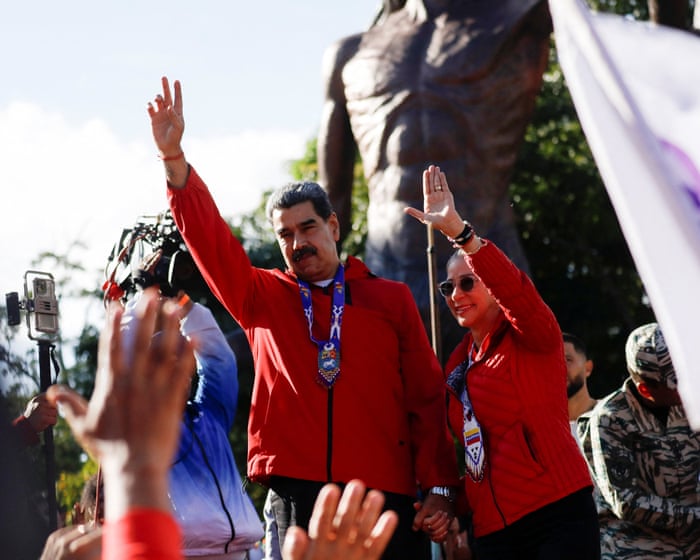
© Photograph: Leonardo Fernández Viloria/Reuters
This week’s partisan blame game is the wrong response to the collapse of the alleged Chinese spying case. The failure of governance runs deeper
The China spying row has revealed disturbing weaknesses in the processes of the UK state. It cannot be in the national interest for a case involving national security to get so close to the courts and then for it to be abandoned in what remain mysterious circumstances. Public confidence, as well as security itself, are inevitably placed at risk. But this genuinely important issue now risks being blanketed by the fog of the party-political battle at Westminster.
For the third time this week, MPs spent Thursday trading accusations about whether the Conservatives or Labour are more to blame for the fiasco of last month’s collapsed prosecution. To be fair, the latest exchanges did not descend to the abject “did-didn’t” level that was reached at prime minister’s questions on Wednesday. Politicians from Sir Keir Starmer down are fond of saying that the national interest comes before the party interest. But there has been too little evidence of that principle in the current dispute.
Do you have an opinion on the issues raised in this article? If you would like to submit a response of up to 300 words by email to be considered for publication in our letters section, please click here.
Continue reading...
© Photograph: Jonathan Brady/PA
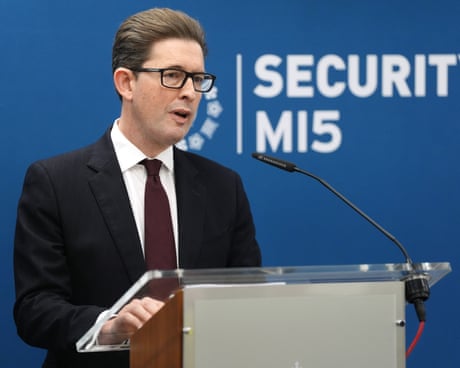
© Photograph: Jonathan Brady/PA
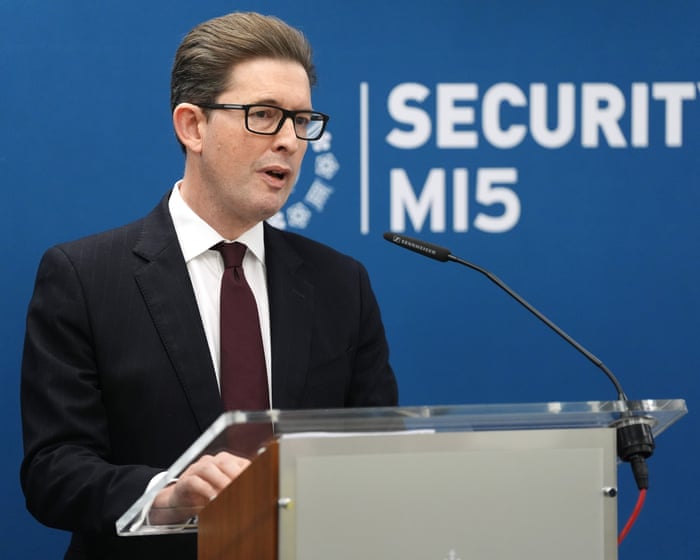
© Photograph: Jonathan Brady/PA
Dispelling confusion about the collapsed case would build confidence that the government has a coherent policy
No single word describes the challenge that China poses for UK foreign policy. There is threat and opportunity; a requirement to engage and an imperative to be guarded. The Communist party in Beijing represses dissent and pursues its interests overseas with coercive nationalist determination. It is not a regime with which Britain can build a relationship based on common values.
But China is also a superpower with near-monopoly control of some mineral resources and pre-eminence in important manufacturing supply chains. Trusting friendship is not an option; hostile rejection is unrealistic. It is not easy to manage relations through private diplomacy, let alone under public scrutiny. But Sir Keir Starmer’s government has looked especially awkward in its response to the collapse of a high-profile espionage case, involving the alleged transmission of secrets from inside parliament to Chinese officials.
Do you have an opinion on the issues raised in this article? If you would like to submit a response of up to 300 words by email to be considered for publication in our letters section, please click here.
Continue reading...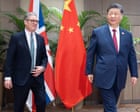
© Photograph: Stefan Rousseau
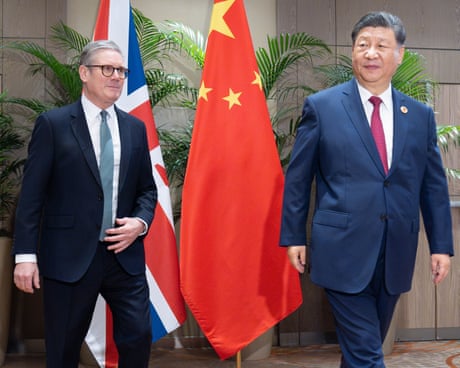
© Photograph: Stefan Rousseau
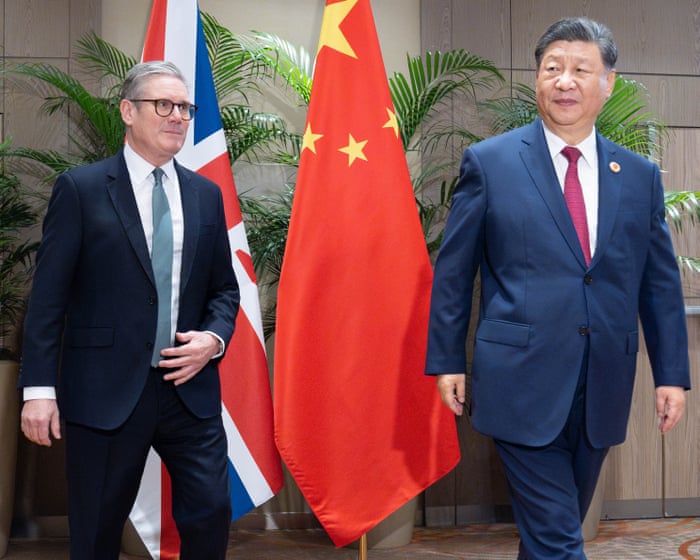
© Photograph: Stefan Rousseau